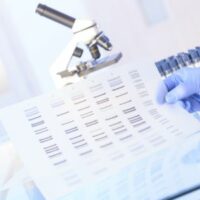How Accurate Are Paternity Tests?

When it comes to establishing the identity of a child’s biological father, DNA tests are one of the most popular and reliable methods of proving paternity. For this reason, courts regularly rely on these kinds of tests when paternity is contested, so it’s a good idea for those who are involved in paternity-related litigation, to have a thorough understanding of this process. To learn more about DNA testing and other forms of proving paternity, please call our experienced Clearwater paternity lawyers today.
Taking a Paternity Test
Taking a paternity test requires the collection of a small sample of the DNA of both the alleged father and the child. This can be achieved in a couple of different ways, including by:
- Taking a small sample of blood from both individuals;
- Using a swab of cells from the parties’ cheeks;
- Taking saliva samples; and
- Testing the parties’ hairs.
Most of these tests are conducted after a child has been born. While it is possible to collect DNA while a child is still in the womb, the methods for doing so (taking a sample of amniotic fluid or the uterine walls) could pose a risk to the health of both the mother and the child. After the eighth week of pregnancy, however, it is possible to determine a child’s paternity by testing the mother’s blood.
Once the DNA samples have been taken, they are labeled and sent to a lab, where they will be examined to see if they share DNA. Ultimately, if both subjects share sufficient DNA, the man will be ruled the child’s father. If, on the other hand, this DNA test reveals a lack of shared DNA, then the man can use the evidence to disprove the allegations of paternity.
The Accuracy of DNA Tests
DNA tests are generally considered to be the most precise way to test paternity. In most cases, this method is believed to be approximately 99.9 percent accurate in proving or disproving paternity. Inaccurate results are rare, but when they do occur, can usually be chalked up to a mistake made during the sampling or testing process. Lab errors, for example, can produce false positive or negative results, while improper storage of the samples could result in an inaccurate finding.
Overall, DNA is one of the best ways to establish paternity, which is beneficial for a number of reasons. Aside from the emotional and personal aspects of forging such a relationship, knowing who a child’s biological father is can also help in the tracking and diagnosis of certain medical conditions, while also ensuring that a child has financial support.
Call Today to Learn More About Establishing Paternity in Florida
If you believe you are a child’s biological father and want to establish a legal parental relationship, or your child’s father is contesting paternity, you may want to consider taking a DNA test. Please call 727-683-1472 to speak with an experienced Clearwater paternity lawyer at Cairns Law to learn more about your legal options.
